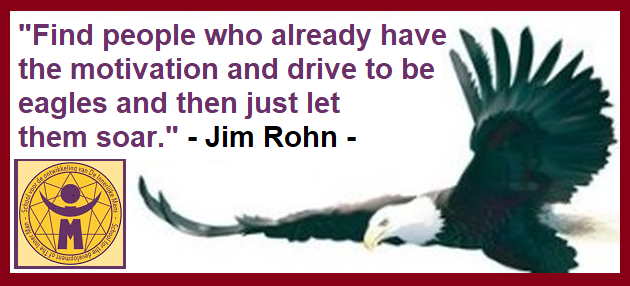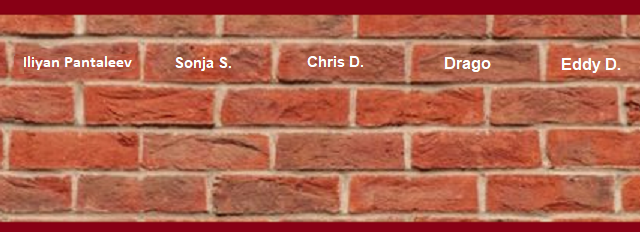Let's start with the transcript of the videoclip...
“Like plants, so men also grow, some in the light, others in the shadows. There are many who need the shadows and not the light.” - Carl Jung, The Red Book.
None of us are as good as we like to think. We possess animalistic drives for sex and power. We have a cruel and aggressive side that can do great harm to others, and we tend to deny our flaws and weaknesses. But what we deny does not disappear, it sinks into the unconscious and congregates in what Carl Jung called the shadow. In this video we are going to explore how confronting the shadow, and integrating its elements into our personality, is a means to rejuvenate our life and heal a divided world.
“Only the man who goes through this darkness can hope to make any further progress.” - Carl Jung, Yoga and the West.
For a shadow to be cast an object must impede a path of light. The object that casts our psychological shadow is our persona. Persona is a Latin word signifying a mask worn by an actor. In Jungian psychology, the persona represents the metaphorical mask we wear in the social world. It is the collection of character traits we want others to believe define us, or as Jung writes, the persona is:
“... a kind of mask, designed on the one hand to make a definite impression upon others - and, on the other: to conceal the true nature of the individual.” - Carl Jung, Two Essays on Analytical Psychology.
The construction of our persona begins early in life as we learn which elements of our character garner approval from family members, peers, and society at large, and which are rejected. The former we integrate into our persona, the latter we hide behind this mask. Over time, however, so as not to feel like a fraud, most of us identify with our persona and in the process hide unwanted character traits not only from others, but also from ourselves. These character traits are repressed and congregate in the unconscious to form the shadow.
“The shadow is the inferior part of the personality; sum of all ... psychic elements which, because of their incompatibility with the chosen conscious attitude [of the persona], are denied expression in life and therefore coalesce into a relatively autonomous “splinter personality” with contrary tendencies in the unconscious.” - Carl Jung, Memories, Dreams, Reflections.
The repressed contents of our shadow do not lie dormant in the unconscious, never to be heard from again. Rather they operate in an autonomous manner behind the spotlight of conscious awareness. One way the shadow manifests itself is through projection, wherein we perceive in other individuals, groups, nations, races, or political parties, the weaknesses, faults, and evils, that reside within ourselves. Or as Jung put it:
“We still attribute to the other fellow all the evil and inferior qualities that we do not like to recognize in ourselves, and therefore have to criticize and attack him, when all that has happened is that an inferior 'soul' has emigrated from one person to another. The world is still full of … scapegoats, just as it formerly teemed with witches and werewolves.” - Carl Jung, Civilization in Transition.
Elements of our shadow also find expression in our day-to-day life by affecting our moods and behaviors. For the character traits, instincts, and desires that we repress fester in the unconscious, creating a tension between our conscious personality and the autonomous splinter personality of the shadow. At times of stress, or conflict, when our conscious mind is unable to keep the doors of the unconscious closed, the shadow reveals itself, and often with damaging consequences.
“There are patients who boast that for them the shadow-side does not exist; they assure us that they have no conflict, but they do not see that other things of unknown origin cumber their path – hysterical moods, underhand tricks which they play on themselves and their neighbours, a nervous [inflammation] of the stomach, pains in various places, irritability for no reason, and a whole host of nervous symptoms.” - Carl Jung, Two Essays on Analytical Psychology.
Rather than denying the shadow, we are far better served by shining a light on this dark side of our character. Confronting the shadow begins with accepting its existence and realizing that the personality we portray to the world, and our conscious sense of self, does not represent us in totality. Once accepted, honest self-reflection and self-criticism, can reveal some of the traits we have been hiding from. The good and the bad explains Jung...
“… are bound to come to light in [us], should [we] wish – as [we] ought – to live without self-deception or self-delusion.” - Carl Jung, Memories, Dreams, Reflections.
But not all the contents of our shadow can be confronted by turning within as some elements of our character have been pushed too far into the depths of the unconscious. To unearth these elements, we can use a few different tactics...:
Firstly, we should take notice of any traits in other people that trigger a particularly strong emotional reaction, as this is a sign that the same trait lies within us. Another tactic is to peer into the shadow of someone close to us – a task that is typically easier than peering into our own. For although some aspects of the shadow are personal, much that gets deposited there is influenced by social and cultural trends and so shared among members of our society. A character trait we reject, has likely been rejected by a sibling or close friend. If we can learn about their shadow, clues about our own will be revealed.
“... I have come to the conclusion that the most individual thing about man is surely his consciousness, but that his shadow ... is far less individualized, the reason being that a man is distinguished from his fellows more by his virtues than by his negative qualities.” - Carl Jung, Fundamental Questions of Psychotherapy.
One of the many benefits of gaining greater knowledge of our dark side is that it creates a contrast that allows the good of our character to stand out in greater prominence. Or as Jung writes, when we confront the shadow we suddenly...
“... see both sides. [We] become aware not only of [our] moral inferiorities but also, automatically, of [our] good qualities. [We] rightly say, “I can’t be as bad as all that.” To confront a person with his shadow is to show him his own light.” - Carl Jung, Civilization in Transition.
Confronting the shadow also reduces the ability of our flaws and weaknesses to wreak havoc on our life. Awareness of an anger issue, selfishness, greed, or aggression, or of an obsession or compulsion, grants us the opportunity to exert a modicum of control over it. We can strive to overcome the flaw, or at least minimize its potential damage, for as Jung explains:
“The psychiatrist knows that certain dangerous unconscious forces can be rendered harmless, or at least held in check, if they are made conscious, that is: if the patient can assimilate them and integrate them with his personality.” - Carl Jung, Collected Works Volume 18.
In the shadow we also discover instinctual drives for aggression, power, and sex, that contain immense amounts of energy. In becoming aware of these drives, and sublimating them – that is: putting them in the service of higher ends – these drives can empower us, motivate us to take the needed risks for a fulfilling life, and even spur our creativity.
“... only down below can we find the fiery source of life...” - Carl Jung, Psychology and Alchemy.
The shadow contains more than just animalistic instincts, flaws, and weaknesses. It is also home to strengths of our character which we repressed as a result of a poor upbringing or adapting to a sick society. Some people, for example, deny their intelligence, creativity, resoluteness, or ability to act in defiance of corrupt authority figures:
“... [the] shadow,” writes Jung “does not consist only of morally reprehensible tendencies, but also displays a number of good qualities, such as normal instincts, appropriate reactions, realistic insights, creative impulses, etcetera ... the shadow is on one side regrettable and reprehensible weakness, on the other side healthy instinctivity and the prerequisite for higher consciousness.” - Carl Jung, Aion.
To harness the positive side of our shadow requires more than merely observing what resides in its depths. We should consciously integrate the elements of our shadow into our character and allow them expression in our day-to-day life, or as Jung’s renowned student Erich Neumann wrote:
“The recognition and acceptance of the shadow presupposes more than a mere willingness to look at one’s dark brother – and then to return him to a state of suppression where he languishes like a prisoner in a gaol. It involves granting him freedom to share in one’s life.” - Erich Neumann, Depth Psychology and a New Ethic.
Re-connecting with the positive side of our shadow, minimizing the effects of it negative side, and integrating it all into our conscious sense of self, produces a character that tends toward the ideal of wholeness – which Jung believed defined the psychologically healthy. As we approach a state of wholeness, we become more attractive to other people. For human beings possess an instinctive suspicion of those who appear too good and who identify too much with their persona. We know that beneath a bright persona, lurks a dark and dangerous shadow. Far more attractive is the complete character, the whole man, who knows not only of his strengths, virtues, and potential for good, but also of his weaknesses, faults, and potential for evil. Or as Jung writes:
“... the shadow belongs to the wholeness of the personality: the strong man must somewhere be weak, somewhere the clever man must be stupid, otherwise he is too good to be true and falls back on pose and bluff. Is it not an old truth that woman loves the weaknesses of the strong man more than his strength, and the stupidity of the clever man more than his cleverness? Her love wants the whole man...” - Carl Jung, Civilization in Transition.
Those of us who take up the challenge of confronting the shadow will also help heal a divided world. For when we face the shadow, we withdraw our projections, and we stop participating in the rampant scapegoating of political opponents or members of a different race, religion, ethnicity, or gender:
“If you imagine someone who is brave enough to withdraw all these projections, then you get an individual who is conscious of a pretty thick shadow. Such a man has saddled himself with new problems and conflicts. He has become a serious problem to himself, as he is now unable to say that they do this or that, they are wrong, and they must be fought against.” - Carl Jung, Psychology and Religion: West and East.
Too many people see all the problems in society, and all the problems of other people, but fail to notice the much more serious problem that lies within themselves. They fail to see they are a character split in two and until they confront the shadow side, they will only amplify the hostility and divisiveness of the modern world.
“... (the man who confronts his shadow) knows that whatever is wrong in the world is in himself, and if he only learns to deal with his own shadow he has done something real for the world. He has succeeded in shouldering at least an infinitesimal part of the gigantic, unsolved social problems of our day... How can anyone see straight when he does not even see himself and the darkness he unconsciously carries with him into all his dealings?” - Carl Jung, Psychology and Religion: West and East.

"Vind mensen, die in zichzelf zowel de motivatie als de aangeboren drijfveer hebben om aan hun Innerlijke Zelf te werken, en we zullen hen gidsen."
- DIMschool vzw, de énige gespecialiseerd in Zelfkennis, zijnde: het kennen van het Zelf -
--------------------------------------------------------------------------------------------------------------------------------------------------
En, voel jij je geroepen om Spiritualia te sponsoren?
Klik dan op deze link. Alvast bedankt!
Overschrijven kan ook via: IBAN: BE22 7795 9845 2547 - BIC: GKCCBEBB
- Indien je zo'n (bak)steentje bijdraagt, ook eventueel via een aankoop of een Zoek&Vind abonnement, mogen we jouw naam hieronder publiceren? Laat het ons weten! -

- Ook kan je dus in onze webshop iets aankopen, waaronder:
Archetypen vragenlijst
Kristallen schedels
Pendels
Purperen plaatjes
Wierook & Benodigdheden
Voor de 'Zoekers naar hun Innerlijke Waarheid' is er...: Eclecticus!
En, dan heb je nog ...
DIMschool biedt 10 interessante privé-sessies aan waaruit jij kan kiezen!
Dossier Zelfkennis: Over de Handleiding Pendelen van A tot Z
'Eclecticus': een korte introductie…
Prachtige geode amethist schedel van 4 kg 340 gram zoekt een warme thuis.
Wat is jouw Archetype ? En, ken je ook die van jouw partner?
Een Cursus in Wonderen - A Course in Miracles: een introductie.
Interesse in Kabbala en de Boom des Levens?
Pssst! Jij, ja jij! Leren werken met Runen?… De handleiding is beschikbaar!
